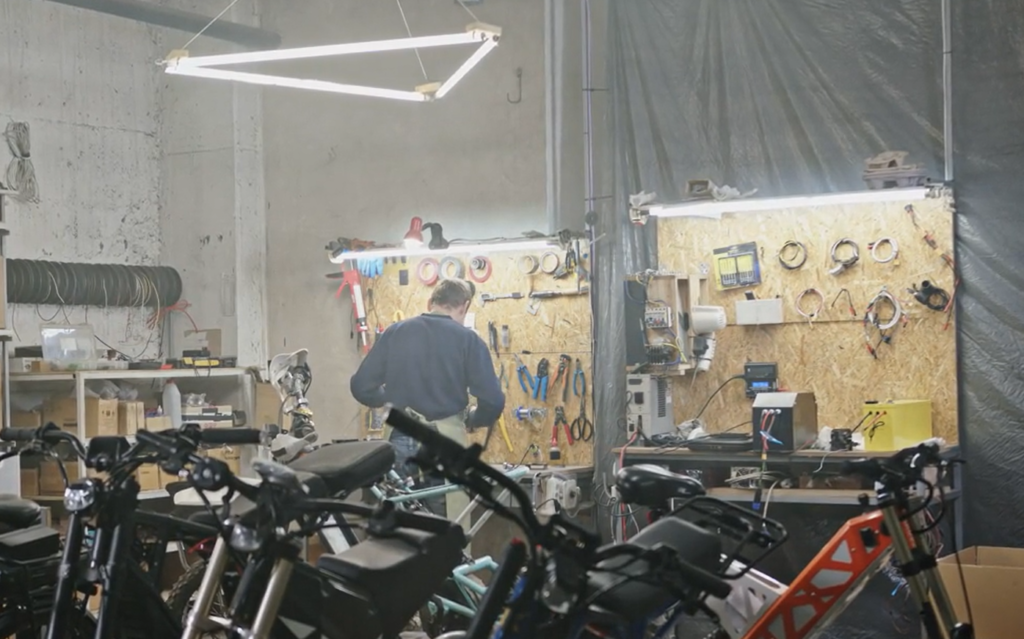Are you thinking of hiring out your equipment to private individuals? Whether you wish to do so as a private individual or as a professional, it is in your interest to draw up an equipment hire contract. There is a certain amount of risk involved in hiring out equipment, and if you want to hire out your items over the long term, you need to make sure that they are returned to you in excellent condition as often as possible, or else be within your rights to demand compensation from the hirer or to keep the deposit requested in advance.
In this article, we'll define the essence of the equipment rental contract, and end by sharing a rental contract template to ensure your business runs smoothly on the Qijco sales and rental platform.
Introduction to equipment leasing contracts
The definition
An equipment rental contract is a legally binding document used to formalise the rental of equipment between two parties for a specified period.
The purpose of this contract is to clarify the responsibilities and obligations of each party in detail, in order to ensure that the interests of both parties are protected. Any amendment to the contract by either party requires the prior written consent of the other party.
The contract specifies the following elements:
- The rental period
- The amount payable
- Instructions for using and returning the equipment.
Putting this information in writing ensures that both parties are on the same wavelength before proceeding with the actual rental.
The parties involved
Any good equipment hire contract requires several parties, and at least two. In most cases, the hire contract involves two parties: the owner of the equipment and the hirer of the equipment.
The owner of the equipment
The owner of the equipment in an equipment rental contract is the person or entity that rents its equipment to the other party, i.e. the hirer, under the terms and conditions of the equipment rental contract.
The lessee of the equipment
The hirer of the equipment is the person or entity who hires the equipment from the owner under the hire contract issued. The hirer must comply with the obligations set out in the hire contract, failing which the deposit will be forfeited or the hirer will owe a certain sum of money as defined in the contract.
Example of a situation:
Let's imagine a private individual using the Qijco.be website to offer to hire out his plant shredder. Here's how the process would work:
- Rental advertisement : The owner publishes an advert on Qijco to hire out his shredder.
- Drawing up the contract : A web user interested in the advert becomes the tenant and a rental contract is drawn up between the two parties.
- Rental conditions :
Price : The tenant agrees to pay €15 per day to hire the shredder.
Deposit A deposit of €200 is required and will be paid when the shredder is handed over to the hirer. - Use and return :
During the rental period, the hirer will use the shredder in accordance with the agreed terms.
At the end of the rental period, the hirer must return the shredder to the owner. - Problem management :
If the shredder has any defects or damage when it is returned, and these problems are clearly stipulated in the rental contract, the owner may deduct part or all of the €200 deposit to cover the cost of repair or replacement.
In this way, the lease contract protects the interests of both parties and establishes clear rules for the management of the leased equipment.
When do I need a tenancy agreement?
We recommend that you use an equipment hire contract for all hire situations without distinction.
If you are the owner, you can refer to this contract to protect your rights, and thanks to this rental contract you can make the hirer responsible so that he makes good use of your equipment and its value is preserved for future rentals.
If you are the hirer, you can also use a hire contract if you want to hire equipment from a private individual but the latter has not drawn up a contract. In that case, take the initiative to protect yourself in the event of problems when the equipment is returned.
What types of equipment are covered by a rental contract?
All types of equipment can be the subject of a rental contract. Of course, on the Qijco.be platform, we focus on DIY and gardening equipment. This includes both amateur and professional tools, household cleaning equipment, site machinery and home decoration equipment.
Example: If you hire out your shampooer, it's a good idea to draw up a hire contract setting out a daily hire charge and a deposit, and containing, for example, an inventory of the equipment listing any defects prior to hire. This will enable you to take action against the hirer in the event of a major defect when the shampooer is returned. The contract can also specify whether or not cleaning product is present before hire, and whether or not the machine must be returned with the same amount of product. This will prevent any hirer who returns the machine empty of any product even though he or she has received it with a full tank, which would not be fair to the owner.
Each type of equipment requires a specific rental contract, which takes into account the particular features of that specific piece of equipment. Some machines need to be refilled with product, while others run on electric batteries, which raises the question of recharging, and still others have blades that need to be used with care to avoid excessive wear.
The 7 basic elements of an equipment rental contract
A good equipment hire contract must include at least 7 elements:
Rental equipment
The equipment hire contract must contain a precise description of the equipment hired, leaving no room for doubt.
It must include the name of the equipment, an exhaustive list of associated accessories and the quantity of each part.
If you rent a trailer on Qijco.be as the owner, and your trailer is rented with straps, for example, then your hirer must return it with these same straps. However, if the rental contract does not mention the straps, you cannot take legal action against the hirer if he fails to return the straps. Even if the straps are returned damaged, since they are not mentioned in the hire contract, they were not supposed to be hired and your hirer will be able to deny having received them when he/she collected the equipment.
Rental rates
The precise amount to be paid by the hirer must be specified, in exchange for which the hirer receives the desired equipment.
Pricing can be daily, weekly or even monthly, depending on the type of equipment and the tenant's workflow.
The rental period
The rental period must be precisely defined, including a start date and time and an end date and time. It must also be specified whether any hour or day started is an hour or day owed by the hirer, or not.
Use and maintenance of equipment
As the owner of the rented equipment, you must provide instructions on the use and maintenance of the equipment and clearly specify who is responsible for it.
You can include advice on use taken from instruction manuals when purchasing tools, and you can also specify who is to use the equipment to ensure responsible use. In this way, you can contractually limit the use of your equipment to the person named on the contract.
Bail and compensation
Specify on the contract the amount of any deposit to be paid when the equipment is returned, and don't forget to specify that all or part of this deposit may be deducted at the owner's discretion to compensate for any defects found when the equipment is returned.
You should also specify the terms of compensation in the event of malfunction or accident during the rental period.
Mention, for example, that the hirer cannot claim reimbursement or take legal action against you for material or physical damage caused by an accident with your hire equipment. This part of the contract is very important, because the amount of compensation for accidents can very quickly climb into the stratosphere in the event of serious injury. Given that we're talking about rather dangerous equipment that may have rotating blades, it's all the more vital to take this into account and to be very precise.
Insurance
You should also indicate whether or not the tenant is required to take out insurance, or whether you yourself provide insurance cover.
When you hire equipment, your protection in the event of loss, damage or deterioration is at the heart of your success. Generally, civil liability insurance (included in your family liability insurance or your home insurance) can cover this type of incident. You should check with your insurer to find out the exact terms of your cover.
This insurance can cover :
- Loss of or damage to equipment ;
- Adjacent property damage;
- Personal injury during use.
You should also inform your hirer to check his or her own civil liability insurance to make sure that he or she is properly covered during the rental period. If in doubt, it may be a good idea to take out additional insurance quickly, just for the duration of the rental period.
Equipment recovery method
Finally, the equipment hire contract must specify who is responsible for loading and unloading the equipment and for transporting it from the owner to the hirer, at the beginning and end of the hire period. Does the hirer collect the equipment from the owner? Does he have to load it into his own vehicle at his own expense, or does the owner have to load it himself? Everything needs to be specified.
Our free equipment rental contract template
As you can see, there are many factors to take into account when it comes to hiring equipment properly. A good contract is one that protects both parties and is fair in all circumstances. To help you make smooth use of our online tools and materials hire and sales platform, we have provided you with a complete equipment hire contract template, which you can download and complete in full here.




